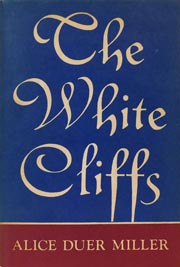
|
Itsas-malda zuriak
XXV
“Orrela ba, Susan maitia” zion, Ingeles batek maitemindu zaitu. Esan bear da gizontsuak eta erakarkorrenak dirala. Zure gustokoak ba’dira, nerekoak ez, Oso osorik Yanke nauzu, Ez zaizkit gogokoak Ez eta egiten dituzten gauzak. Gurekin borroka egitean Oker zeuden eta gurea arrazoia; Sinesten ez badezu, eman edestiari begiraldea. Eta zer aurkitzen? Ezer ordezpenik gabe Zerga asaldagarria ezarri, Ez zeukaten argibiderik ori egiteko. Izan bear dun guztia zure gizona izango da, Bañan onera ez nazazula ekarri, Te naiko ona ez duela lortzen— Boston’eko kaian, gau batean, nai zun Te guztiz ona eskuratu zezakean, Zure eren-amonak — ura ere sue — Senarraren oiñetakoetik te naikoa atera Aste bat edo bitan etxea ornitzeko. 1812’garren urteko guda, izan diteken Bidezkoa izan dala deritzait. Nola ez burruka egin, gure itsas-ontziak geldi-arazi Ta ikertzen zituztenean, gure itsas-gizonak atzapartu. Oraindik asarreari ematen diot Alabama’ri alde egiten utzi ziotela entzutean, Eta Palmerston ain lotsagabea Lincoln eta Seward’eri Trenfen. Ori guztia oso urruti dagoela, diozu, Bañan Boston’era joaten naizen bakoitzean Concord’tik aurrera igarotzean, baso-lepo orretatik, Bein artan nekazariak borroka egin zutenean, Revere’tzaz gogoratzen eta Ego Kanpandorretzaz. Esaten det, arraio pola, gu bakarrik izan, Ez bein, bi aldiz baizik, irabazleak. Sekulan ez aaztu— auxe nere aolkua. Zerbait badaukate— zintzo ta biozdunak, Leial eta ziur— ilobia bezin ziurrak; Beste laterriak zurbil eta aldakorrak ager arazten, Bañan Ingeleterra Jainkoa dala uste, Noizik bein gogoratu arazi bear diegu Beste laterriak beste gizonak sortzen dituztela. Beraz, naiko zuzen-kontrakoa naizela Usteko dezu. Maite zaitun Zure aitak.
XXV ‘So, Susan, my dear,’ the letter began, / ‘You’ve fallen in love with an Englishman. / Well, they’re a manly, attractive lot, / If you happen to like them, which I do not. / I am a Yankee through and through, / And I don’t like them, or the things they do. / Whenever it’s come to a knock-down fight / With us, they were wrong, and we right; / If you don’t believe me, cast your mind / Back over history, what do you find? / They certainly had no justification. / For that maddening plan to impose taxation / Without any form of representation. / Your man may be all that a man should be, / Only don’t you bring him back to me / Saying he can’t get decent tea— / He could have got his tea all right / In Boston Harbour a certain night, / When your great-great-grandmother—also a Sue— / Shook enough tea from her husband’s shoe / To supply her house for a week or two. / The war of 18I2 seems to me / About as just as a war could be. / How could we help but come to grips / With a nation that stopped and searched our ships, / And took off our seamen for no other reason / Except that they needed crews that season / I can get angry still at the tale / Of their letting the Alabama sail, / And Palmerston being insolent / To Lincoln and Seward over the Trent. / All very long ago, you’ll say, / But whenever I go up Boston-way, / I drive through Concord—that neck of the wood, / Where once the embattled farmers stood, / And I think of Revere, and the old South Steeple, / And I say, by heck, we’re the only people / Who licked them not only once, but twice. / Never forget it—that’s my advice. / They have their points—they’re honest and brave, / Loyal and sure—as sure as the grave; / They make other nations seem pale and flighty, / But they do think England is god almighty, / And you must remind them now and then / That other countries breed other men. / From all of which you will think me rather / Unjust. I am. / Your devoted / father.
Itsas-malda zuriak |